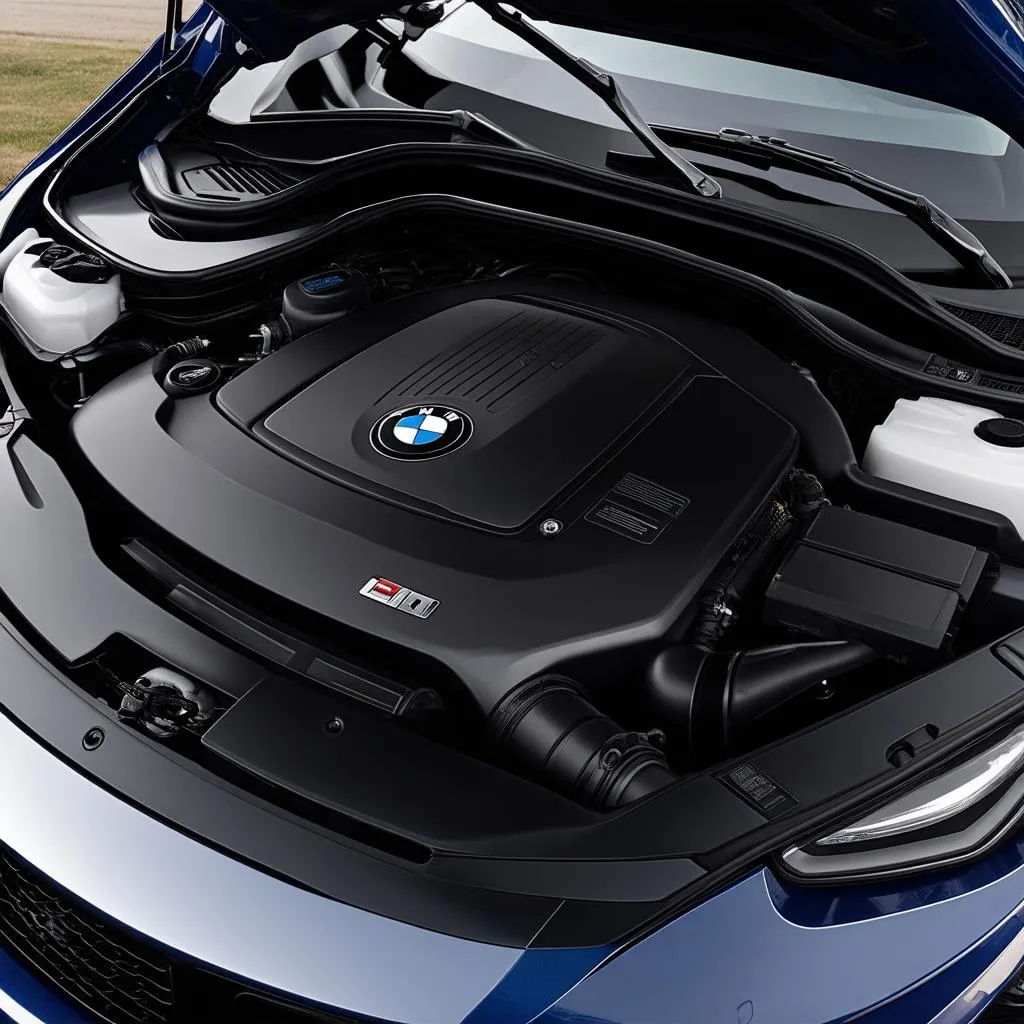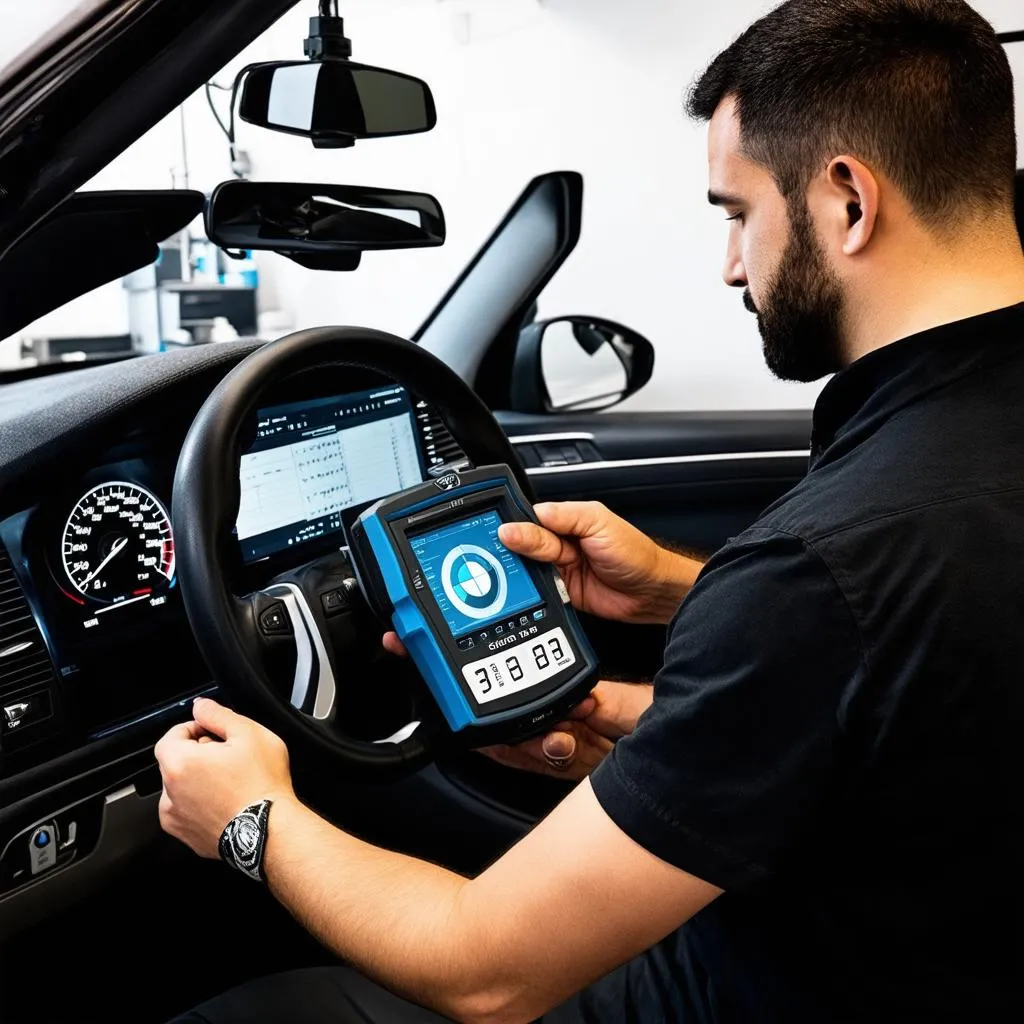Unlocking the Mystery: What Does “BMW 123” Really Mean?
Imagine this: you’re at a car meet, and someone casually mentions their “Bmw 123.” Everyone seems to understand, nodding along with knowing smiles. You, however, are left scratching your head. Is it a model? An engine type? A secret code only true BMW enthusiasts know? Don’t worry, you’re not alone! “BMW 123” can seem like a puzzle, but we’re here to break it down for you.
Decoding “BMW 123”
To a car enthusiast, especially a BMW fan, “123” might trigger thoughts of the classic BMW 1 Series, particularly the E87 generation produced between 2004 and 2013. However, without further context, “BMW 123” alone doesn’t pinpoint a specific car model.
What “BMW 123” Could Refer To:
- BMW 1 Series: The most common association, particularly the 123d model, known for its powerful and efficient diesel engine. You can learn more about enhancing its performance with our article on BMW 123d Stage 2 tuning.
- Engine Variant: BMW often uses numbers in their model designations to signify engine size or type. “123” could theoretically point towards a specific engine, though not a common one currently in use.
- A General Term: In casual conversation, some people might use “BMW 123” as a blanket term for any BMW 1 Series, especially when the exact model isn’t crucial to the conversation.
Why Clarity Matters
In the world of automotive repair and diagnostics, especially when using dealer-level equipment like those designed for European cars, precision is key. If you’re searching for information, parts, or diagnostic solutions, simply typing “BMW 123” might not yield the desired results.
For instance, let’s say you’re experiencing issues with your BMW 123d and need to find information about tuning its diesel engine. Using more specific search terms like “BMW 123d diesel tuning” will lead you to more relevant resources, such as our guide on BMW diesel tuning.
 BMW 123d Engine
BMW 123d Engine
Navigating the World of BMW Designations
BMW, like many German automakers, employs a specific nomenclature for its vehicles, which can initially seem complex. Understanding this system can be incredibly helpful:
- Series: The first number usually indicates the model series (e.g., 1 Series, 3 Series, X5).
- Engine Type: Letters often denote the fuel type (e.g., “i” for gasoline, “d” for diesel).
- Engine Size/Power: The remaining numbers can signify engine displacement or, more recently, a general performance level.
Seeking Accurate Information
When researching or discussing your BMW, always strive for clarity:
- Specific Model: Instead of “BMW 123,” use the complete model name, such as “BMW 123d” or “BMW 123i.”
- Year of Manufacture: Including the year helps narrow down the possibilities as BMW models evolve over time.
- Engine Code: For technical inquiries, the engine code (found on the engine itself or in your car’s documentation) is crucial.
Beyond “BMW 123”: Exploring Further
If your quest for knowledge about your BMW extends beyond “123,” Car Diag Xpert has a wealth of resources for you!
- Interested in BMW diesel models? Check out our article on the fuel efficiency of the BMW X5 xDrive45e mpg.
- Looking for BMW specialists in your area? Discover the expertise available at BMW Motorcycles of Western Oregon in Tigard.
 BMW Diagnostic Tools
BMW Diagnostic Tools
Need Help with Your BMW?
We understand that navigating the complexities of car diagnostics can be challenging. If you’re looking for expert support in installing or using diagnostic tools for your BMW, don’t hesitate to reach out. Our team of automotive specialists is available 24/7 to assist you. Contact us on WhatsApp at +84767531508.
Whether you’re trying to decipher model names, understand technical specifications, or troubleshoot issues, Car Diag Xpert is your go-to resource for all things automotive. Stay tuned for more insightful articles and don’t forget to share this with your fellow BMW enthusiasts!
